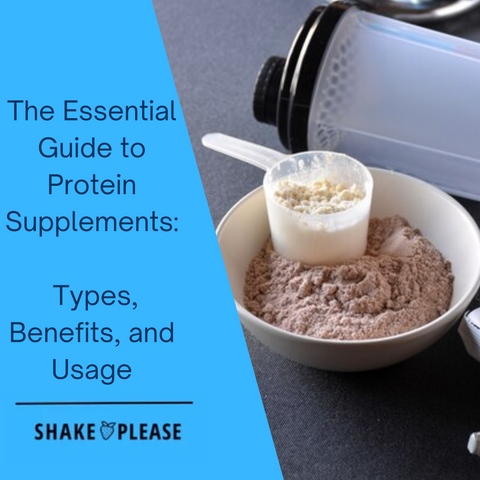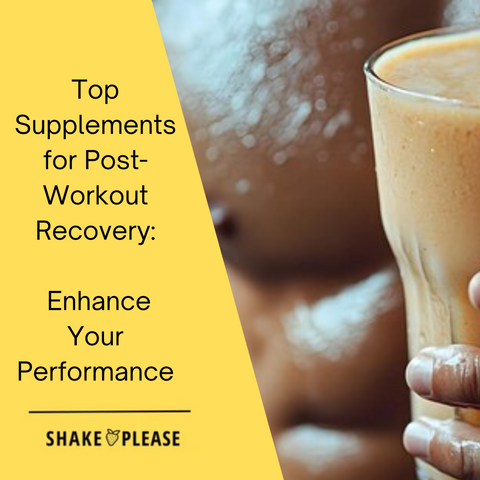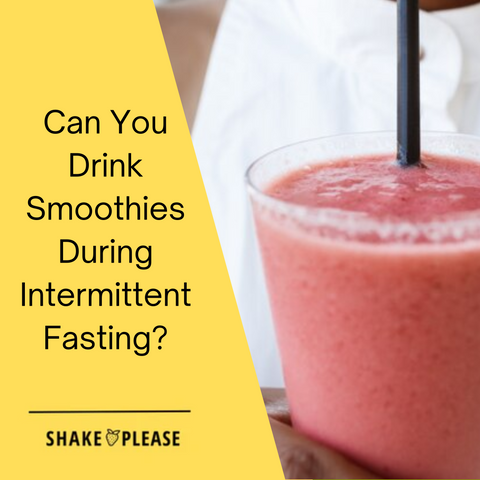
What is Protein Powder?
Protein powder is a dietary supplement that provides a concentrated dose of protein from various sources, including animal, plant, or collagen. It serves as a convenient way to increase protein intake, especially for individuals with busy lifestyles or those looking to enhance their nutritional intake without extensive meal preparation.
-
Sources of Protein Powder:
-
Animal-Based Proteins: Includes whey, casein, and egg protein derived from dairy and eggs.
-
Plant-Based Proteins: Includes pea, rice, hemp, and soy proteins sourced from legumes and seeds.
-
Collagen Proteins: Sourced from animal connective tissues, offering benefits for skin, joint, and bone health.
-
-
Uses of Protein Powder:
-
Smoothies and Shakes: Easily mix protein powder with liquids and other ingredients for a quick, nutritious drink.
-
Protein Bars: Incorporate protein powder into homemade or store-bought protein bars for a portable snack.
-
Meal Replacements: Use protein powder in meal replacement shakes to ensure a balanced intake of macronutrients.
-
Baking and Cooking: Add protein powder to recipes like pancakes, muffins, and soups to boost their protein content.
-
Protein powders come in various forms and flavors, each with a unique nutritional profile, catering to different dietary needs and taste preferences.
Benefits of Using Protein Powders
Protein powder offers a myriad of benefits, making it a popular choice among fitness enthusiasts, athletes, and individuals seeking to enhance their overall health and nutrition.
-
Convenience: Protein powder provides a quick and easy way to boost your protein intake without the need for extensive meal preparation. This is especially beneficial for those with hectic schedules or limited access to high-protein foods.
-
Concentrated Protein Source: A single serving of protein powder delivers a significant amount of protein, making it easier to meet your daily protein requirements. This concentration is ideal for supporting muscle growth, repair, and overall bodily functions.
-
Muscle Recovery and Repair: Protein powder plays a crucial role in muscle recovery post-exercise. It provides the necessary amino acids that aid in repairing and rebuilding muscle tissues, reducing muscle soreness, and enhancing overall performance.
-
Aid in Weight Loss: Incorporating protein powder into your diet can aid in weight loss by boosting metabolism and reducing appetite. Protein has a higher thermic effect compared to carbohydrates and fats, meaning your body burns more calories digesting it. Additionally, protein promotes satiety, helping you feel fuller for longer and preventing overeating.
-
Increase Muscle Mass and Strength: Regular consumption of protein powder, combined with resistance training, can significantly increase muscle mass and strength. This is essential for overall fitness, improved body composition, and enhanced physical performance.
Types of Protein Powders
Protein powders come in various types, each with its own unique benefits and nutritional profiles. Understanding these differences can help you choose the right protein supplement to meet your specific health and fitness goals.
Whey Protein
Whey protein powder is a high-quality protein source that contains all essential amino acids, making it a complete, protein source. It is quickly absorbed by the body, making it an excellent choice for post-workout recovery.
-
Source: Whey protein is isolated from whey, the liquid portion of milk that separates during cheese production.
-
Benefits:
-
Rapid Absorption: Quickly delivers amino acids to muscles, promoting efficient muscle repair and growth.
-
Stimulates Muscle Protein Synthesis: Highly effective at triggering muscle-building processes.
-
Supports Weight Management: Helps in maintaining lean muscle mass while promoting fat loss.
-
-
Usage: Often flavored and added to shakes, meal replacements, and protein bars, making it a convenient way to increase protein intake.
-
Key Product: Our strawberry banana protein smoothie offers a delicious way to incorporate whey protein into your diet, supporting muscle growth and recovery.
Casein Protein
Casein protein is another dairy-derived protein that is known for its slow digestion rate, providing a steady release of amino acids over several hours.
-
Source: Derived from milk, making up about 80% of the protein content in cow’s milk.
-
Benefits:
-
Sustained Amino Acid Release: Provides a continuous supply of amino acids, ideal for overnight muscle recovery.
-
Promotes Muscle Growth and Repair: Supports muscle maintenance over extended periods.
-
Supports Bone Health: Rich in essential amino acids that contribute to bone strength.
-
-
Usage: Best consumed before bedtime or during periods of prolonged fasting to support muscle recovery and growth.
-
Key Product: While casein protein is typically unflavored, our vanilla berry protein smoothie can be customized to include casein for those seeking sustained protein release.
Plant-Based Protein Powders
Plant-based protein powders are derived from sources such as pea, rice, hemp, and soy, making them suitable for vegetarians, vegans, and individuals with dairy allergies.
-
Sources:
-
Pea Protein: Easily digestible, hypoallergenic, and suitable for those with dairy or soy sensitivities.
-
Soy Protein: A complete protein containing all essential amino acids, ideal for vegetarians and vegans.
-
Hemp Protein: Rich in omega-3 fatty acids and fiber, supporting heart health and digestion.
-
Rice Protein: Often combined with pea protein to create a complete amino acid profile.
-
-
Benefits:
-
Suitable for Various Diets: Ideal for those following plant-based diets or with dairy allergies.
-
Rich in Fiber and Micronutrients: Supports digestive health and provides additional nutritional benefits.
-
Supports Muscle Growth and Recovery: Comparable to whey protein in promoting muscle maintenance and growth.
-
-
Usage: Can be added to smoothies, shakes, and other recipes just like animal-based proteins.
-
Key Product: Our chocolate peanut butter banana protein smoothie utilizes plant-based protein to offer a delicious and nutritious option for those seeking plant-based supplementation.
Protein Powders That Are Good for You, According to Nutrition Experts
Choosing the Right Protein Powder
Selecting the appropriate protein powder is essential to maximize its benefits and align it with your health and fitness goals. Here are key factors to consider when choosing the right protein powder:
-
Dietary Preferences and Restrictions: Consider your dietary preferences (e.g., vegan, vegetarian) and any restrictions (e.g., lactose intolerance, allergies) when selecting a protein powder. For instance, plant-based protein powders are ideal for those avoiding animal products, while whey isolate may be suitable for individuals who can tolerate dairy.
-
Fitness Goals Alignment: Think about your fitness goals. If your primary aim is muscle growth and quick recovery, whey protein may be the best option. For sustained protein release, especially overnight, casein protein is more suitable. Plant-based proteins are excellent for those focusing on overall health and digestion.
-
Low in Added Sugars and Artificial Ingredients: Look for protein powders that are low in added sugars, artificial flavors, and sweeteners. Excessive sugar can lead to unwanted calorie intake and hinder your health goals. Opt for natural, minimally processed products to ensure you’re consuming high-quality protein without unnecessary additives.
-
Reputable Brand and High-Quality Ingredients: Choose a protein powder from a reputable brand that uses high-quality ingredients. Third-party certifications, such as NSF Certified for Sport or Informed Choice, can provide assurance of the product’s quality, purity, and safety. Reading labels and researching brands can help you make an informed decision.
By carefully evaluating these factors, you can select a protein powder that best suits your individual needs and preferences, ensuring you achieve your health and fitness goals effectively.
Protein Intake and Timing
Adequate protein intake is essential for muscle growth and recovery. Understanding how much protein you need daily is crucial for optimizing health and performance.
-
Daily Protein Requirements:
-
General Recommendation: Aim to consume 1-2 grams of protein per kilogram of body weight per day. This range supports muscle maintenance, growth, and overall bodily functions.
-
Active Individuals and Athletes: Those engaged in regular physical activity or resistance training may require protein intake at the higher end of this range to support muscle repair and growth.
-
-
Spacing Protein Intake Throughout the Day:
-
Consistent Protein Distribution: Space out your protein intake throughout the day to keep your muscles fueled. Consuming protein in regular intervals helps maintain a steady supply of amino acids, promoting continuous muscle protein synthesis.
-
Meal Integration: Incorporate protein into each meal and snack to ensure a balanced intake. This approach supports sustained energy levels and prevents muscle breakdown.
-
-
Optimal Timing for Protein Consumption:
-
Post-Workout Protein Shake: Consider consuming a protein shake within 30-60 minutes after a workout to aid in muscle recovery and growth. This window, often referred to as the "anabolic window," is when your muscles are most receptive to nutrients that support repair and growth.
-
Before Bedtime: Consuming a protein shake before bedtime can support overnight muscle repair and growth, particularly beneficial for those aiming to increase muscle mass.
-
By understanding and implementing proper protein intake and timing, you can maximize the benefits of protein supplementation, supporting your health and fitness objectives effectively.
How to Incorporate Protein Powders into Meals
Incorporating protein powders into your daily meals can be a simple and effective way to ensure you’re getting enough protein. Here are some creative and practical ways to add protein powders to your diet:
-
Protein-Packed Breakfast: Start your day with a protein boost by adding protein powder to your oatmeal or yogurt. This not only enhances the protein content but also keeps you feeling full longer.
-
Post-Workout Shake: Mix protein powder with milk or water to create a quick and easy post-workout shake. This helps in muscle recovery and replenishes your energy levels.
-
Smoothies and Juices: Blend protein powder into your favorite smoothies or juices for an extra protein kick. It’s a delicious way to increase your protein intake without much effort.
-
Baked Goods: Use protein powder as a substitute for flour in baked goods like muffins, pancakes, or cakes. This not only adds protein but also makes your treats healthier.
-
Protein-Rich Snacks: Mix protein powder with peanut butter or almond butter for a tasty and protein-rich snack. Spread it on toast or enjoy it with fruits for a nutritious treat.
Remember, while protein powders are a convenient, protein source to supplement now, they should not replace whole foods. It’s always best to consult with a healthcare professional or registered dietitian to determine the best way to incorporate protein powders into your diet.
Potential Side Effects of Protein Powders
While protein powders are a convenient and effective way to boost your protein intake, it’s important to be aware of potential side effects. Here are some common issues that can arise from consuming protein powders:
-
Digestive Issues: Some people may experience bloating, gas, or stomach cramps when consuming protein powders. This is often due to lactose intolerance or sensitivity to certain ingredients.
-
Allergic Reactions: Protein powders can cause allergic reactions in some individuals, leading to symptoms like hives, itching, or difficulty breathing. Always check the ingredient list if you have known allergies.
-
Kidney Strain: High protein intake can put a strain on the kidneys, especially for those with pre-existing kidney conditions. It’s crucial to monitor your protein intake and consult with a healthcare provider if you have kidney issues.
-
Dehydration: Protein metabolism requires water, and consuming large amounts of protein powder without adequate hydration can lead to dehydration. Make sure to drink plenty of water throughout the day.
-
Interactions with Medications: Protein powders can interact with certain medications, such as blood thinners and diabetes medications. Always consult with your healthcare provider if you are on medication and plan to use protein supplements.
Additionally, some protein powders can be high in calories, sugar, and fat, particularly those that are flavored or sweetened. To avoid unwanted side effects, choose a protein powder that is low in added sugars, artificial flavors, and sweeteners, and consume it in moderation as part of a balanced diet.
Discover the Power of a Protein Smoothie For Lunch
Debunking Common Protein Myths
In the realm of nutrition, numerous myths surround protein supplementation. Let’s address and debunk some of the most prevalent misconceptions:
1. You Can’t Absorb More Than 50g of Protein Per Meal
Myth: The human body can only absorb up to 50 grams of protein per meal, making higher intakes more protein very ineffective.
Fact: The body’s ability to absorb and utilize protein is more flexible than previously thought. While muscle protein synthesis may plateau after a certain amount collagen protein intake, the body uses excess protein for various other functions, including hormone production, enzyme synthesis, and immune support. Additionally, protein can be used as an energy source or stored as fat if the protein found not immediately needed. Therefore, consuming more than 50 grams of protein in a meal can still contribute many beneficial nutrients to overall health and bodily functions.
2. You Can’t Build Muscle with Plant Protein
Myth: Plant-based proteins are insufficient for muscle growth compared to animal-based proteins.
Fact: Plant-based proteins can be just as effective as animal-based proteins for muscle growth and recovery, provided they are consumed in adequate amounts and include all essential amino acids for muscle tissue make. Many plant proteins, such as soy, pea, and hemp, are complete proteins, meaning they contain all nine essential amino acids necessary for muscle protein synthesis. Furthermore, combining different amino acids from plant protein sources can ensure a comprehensive amino acid profile, supporting optimal muscle tissue development.
3. High Protein Diets Damage Your Kidneys
Myth: Consuming high amounts of soy protein can lead to kidney damage.
Fact: For individuals with healthy kidneys, high protein diets do not pose a risk to kidney health. The misconception arises from concerns related to individuals with pre-existing kidney conditions, where excessive protein intake can exacerbate kidney strain. However, scientific research has consistently shown that a high protein diet intake is safe for those with healthy kidneys. It’s important for individuals with kidney disease or other related health issues to consult with a healthcare professional before significantly increasing their protein intake.
These myths have been debunked by scientific research, affirming that protein powder can be a safe and effective way to increase protein intake when used appropriately.
Protein Powder and Specific Diets
Protein powders can be seamlessly integrated into various dietary lifestyles, ensuring that individuals meet their protein needs without compromising their dietary restrictions or preferences. Here’s how the best protein powder you can fit into specific diets:
1. Vegan or Vegetarian Diets
If you follow a vegan or vegetarian diet, look for plant-based protein powders that are complete and contain all essential amino acids. Combining different plant protein sources, such as pea and rice protein, can ensure a comprehensive amino acid profile. Options like our chocolate peanut butter banana soy protein smoothie provide plant-based protein that caters to vegetarians and vegans without sacrificing taste or nutrition.
2. Dairy Allergy or Lactose Intolerance
Individuals with dairy allergies or lactose intolerance should consider using whey protein concentrate in powders that are lactose-free or entirely plant-based. Whey protein isolate is often lower in lactose compared to whey protein concentrate alone, making it a better option for those sensitive to dairy. Alternatively, plant-based protein powders offer a dairy-free alternative that is equally effective in meeting protein needs.
3. Gluten-Free Diets
For those who follow a gluten-free diet, it’s essential to choose a protein powder that is labeled gluten-free. Some protein powders may contain gluten as an additive or in flavorings, so always check the ingredient list and certifications. Many plant-based and animal-based protein powders are naturally gluten-free, but opting for certified gluten-free products can provide additional assurance.
By selecting the appropriate protein powder tailored to your body weight and specific dietary needs, you can enhance your nutritional intake without compromising your dietary restrictions or preferences.
Conclusion
Protein powder can be a convenient and effective way to increase protein intake and support muscle growth and recovery. With so many types of protein powders available, it’s essential to choose a high-quality protein powder that aligns with your dietary preferences and fitness goals.
By incorporating protein powder into your diet and training routine, you can achieve your fitness goals as much as preserving lean muscle mass does, and support overall health and wellness. Whether you're an active adult, an athlete, or someone aiming to maintain lean muscle mass and overall health, protein powder offers a flexible and efficient method to meet your protein needs.
Debunking common protein myths reinforces the efficacy and safety of protein supplements when used correctly. Understanding that many more protein than than 50 grams of protein per meal can be absorbed by human body, recognizing the effectiveness of plant-based proteins for muscle growth, and dispelling concerns about kidney damage are crucial for making informed decisions about protein supplementation.
Protein powder and specific diets highlight the adaptability of protein supplements to various dietary needs, whether you follow a vegan, dairy-free, or gluten-free diet. By choosing the right protein powder that aligns with your dietary restrictions and preferences, you can seamlessly integrate protein supplementation into your lifestyle.
For those seeking convenient and delicious ways to incorporate protein powder into their diets, our protein smoothie delivery service offers a range of nutritious and tasty protein powder options. By leveraging our high-quality protein smoothies, you can effortlessly meet your protein needs and support your health and fitness goals with ease and enjoyment.





